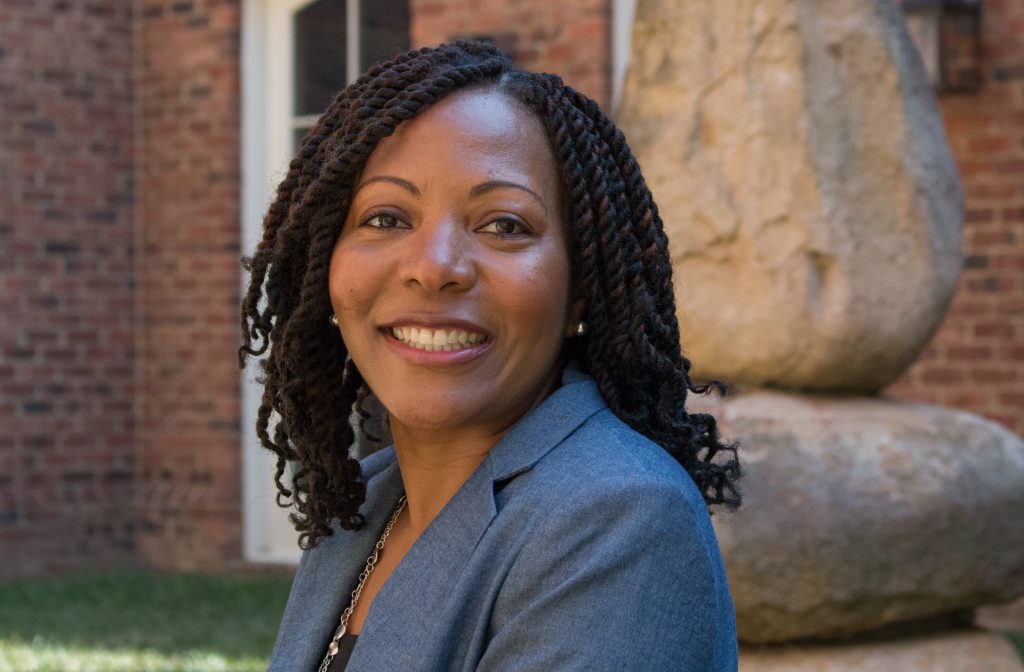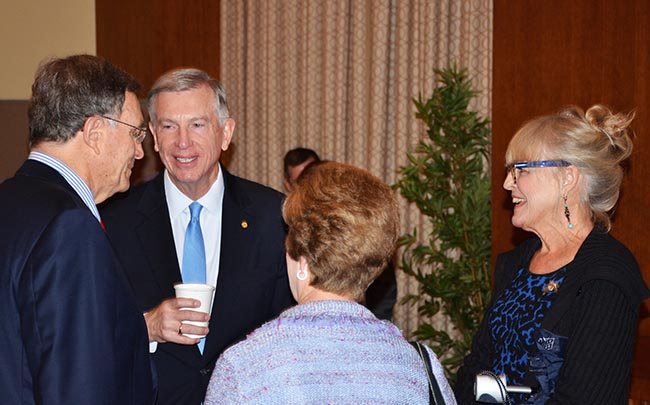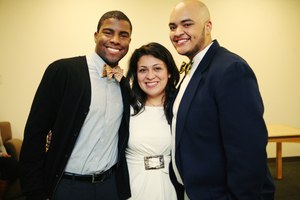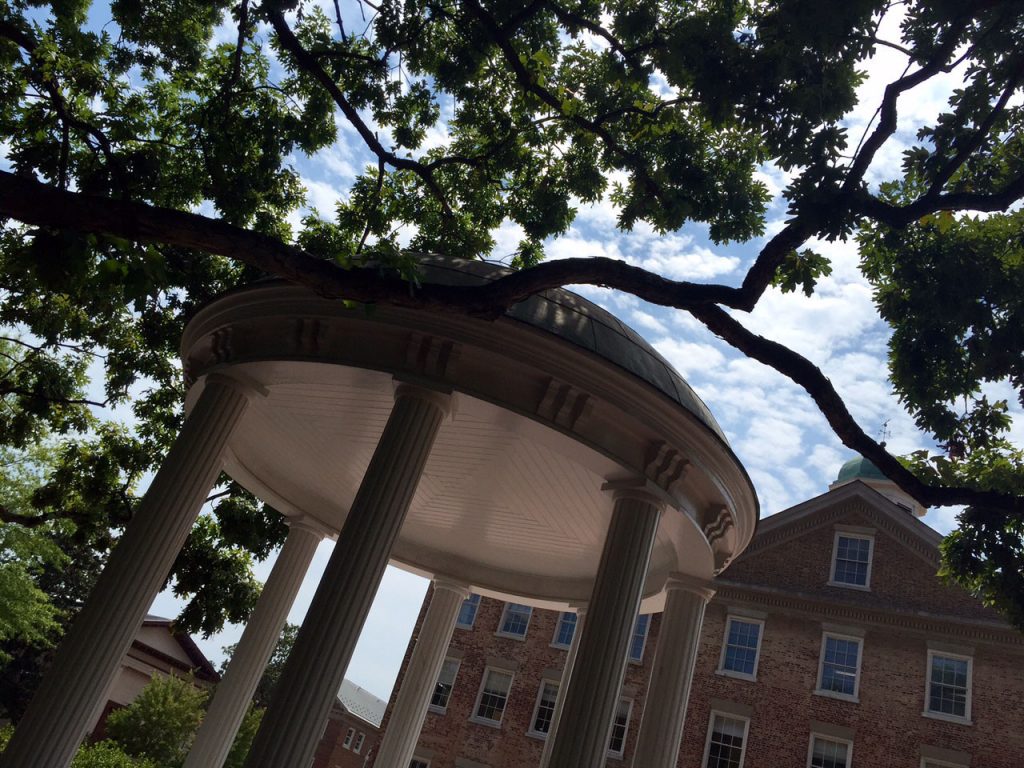Last December, long after most people had finished final exams and left for winter break, four philosophy graduate students and Jan Boxill, director of the Parr Center for Ethics, gathered in a small room on the second floor of Caldwell Hall to continue with big plans for the spring: the first-ever Triangle High School Ethics Bowl, modeled after the collegiate UNC Ethics Bowl, now in its fifth year.
Already dedicated “to being the public face of ethics for the University,” the Parr Center is keen to take that commitment statewide.
Given the Parr Center’s affiliation with the philosophy department, it’s fitting that Boxill, who’s also a senior lecturer in the department, has two equally logical constructs for its mission. There’s this: “Ethical thinking moves you from the more theoretical aspects of philosophy to real-life principles. It helps you organize your thoughts, and gives you a framework for when to speak and how to act.” And then this: “Ethical thinking gets [you] out of the ivory tower and down onto the fields of play.”
UNC graduate students will serve as “coaches” for the teens from public, private and charter high schools in the Research Triangle area who will participate in the ethics bowl. Organizers believe the opportunity to make sense of ripped-from the headlines issues that don’t lend themselves to a Googled solution is too tempting for teachers and students to pass up.
Certainly, there will never be a shortage of teachable moments. Consider just a few of the scenarios that will be in play for the April 30 competition: When to speak out against homophobic slurs, linkages between corporal punishment and child abuse, American-born children of illegal immigrants, privacy on social networks such as Facebook, and the rights of athletes to compete while pregnant.
Putting feet on theoretical issues by using timely topics has proved to be a savvy strategy for the Parr Center, established during the 2004-2005 academic year with a gift from the Gary W. Parr Family Foundation. From the get-go, there’s been an effective collaboration among undergraduates, graduates, faculty fellows, and visiting fellows and scholars. This has created a pool of talent and expertise vast enough to address themes from environmental responsibility and genetic testing to political liberty and military ethics. In 2008, the American Philosophical Association awarded its Prize for Excellence and Innovation in Philosophy Programs to the Parr Center.
Among the Center’s regular programs is the Lunch & Learn series, which is free and open to the public. The first Lunch & Learn of 2011 was “Wiki Leaks, Ethics, and the Law,” led by two professors of journalism and mass communication at UNC. Julian Assange’s disclosures of massive amounts of closely guarded war- and diplomatic-information led to everything from cries of “treason” and threats of legal prosecution to hearty congratulations. The philosophers and ethicists at the Parr Center recognized another opportunity to help people think more deeply about a controversial situation.
In addition to the timely Lunch & Learns, each academic year the Parr Center chooses a dedicated theme. The planned theme for next year is social media and information. Programming in the current year has revolved around environmental ethics issues, kicking off in October with a public lecture by renowned writer and linguist Noam Chomsky. The year will conclude with a day-long symposium on April 2, addressing local environmental issues such as transportation, food, energy, water and development.
“All of the choices we make on a local level, from the food we buy, to where our garbage goes, to how we move around, to how we develop our communities, have profound ethical implications on ourselves, our neighbors and even people on the other side of the earth,” Boxill says.
“Feelings are important, but our lives as individuals and our lives in common are about more than feelings. We need to also deal in facts and recognize no one is infallible. Just because there aren’t easy answers doesn’t mean we shouldn’t look at the facts and try to appreciate different sides of an argument. Ethics figure into every aspect of life.”
Editor’s note: This story by Lisa H. Towle is part of a package of stories on “Creative Collaborations” in the College of Arts and Sciences featured in the spring ’11 Carolina Arts and Sciences magazine.
Read more “Creative Collaborations” stories: Breathing Relief, Languages Across the Curriculum, Mentoring Chemistry, UNC-Duke N.C. Poverty Project, Globe-Trotting for Tardigrades, Real-Life Ethics, Electro-Acoustic Music, Tangled Up in Blues and Making Waves.




